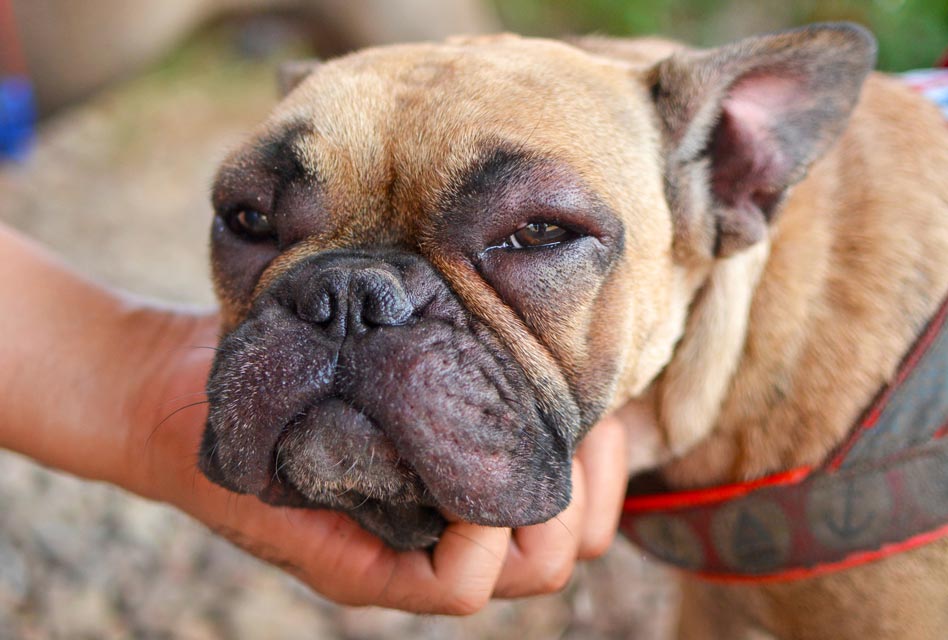My Dog's Face Looks Swollen: What Should I Do?

It's a common situation—you let your dog out to do her business in the back yard for a few minutes, and when she comes back inside, she looks a little…Different. You stop, cock your head, and study her sweet face. Sure enough, it looks swollen on the top and sides of the muzzle and around the eyes.
What on earth is going on, and what should you do?
A Hypersensitivity Reaction Can Cause a Dog's Face to Swell
Most of the time, when your dog's face swells up, it's because of a hypersensitivity reaction—an acute, severe allergy. The most common cause is a bee sting, but it can happen because of any insect bite. It is often a common sign of a vaccine reaction and can happen a day or two after the dog gets shots.
This type of reaction occurs when a dog's immune system overreacts to something that enters it. The body sees the substance, called an allergen, as a foreign invader and triggers a cascade to get rid of it. Part of that cascade is the release of histamine, which causes the swelling on the face, hives on the skin, and itchiness.
Often, along with a visibly swollen face, the dog will be scratching at or rubbing her face on the carpet or household items. You may also see red, raised areas called hives on the skin.
What Should You Do if Your Dog's Face Swells?
If your dog has a swollen face, you should act immediately. Call your vet or the local emergency vet and start heading there right away. A reaction that begins as swelling of the face can progress to swelling around the trachea, difficulty breathing, anaphylactic shock, and then multi-organ dysfunction, collapse, and death.
If you are not close to a vet clinic, your veterinarian may ask you to give your dog some oral Benadryl at home before you leave to go to the clinic. It's a good idea to keep Benadryl in your veterinary first aid kit. Ask your veterinarian how much Benadryl, if any, to give.
When you get to the veterinary clinic, the doctor will do a complete exam and administer medications, probably in injectable form, to counteract the reaction. Medications may include glucocorticoids, antihistamines, and if it is a severe reaction, epinephrine, IV fluids, blood pressure-supporting drugs, and airway dilators.
Prevention of Future Reactions
Sometimes it's impossible to know the exact cause of an allergic reaction, especially if it's an insect bite or bee sting.
If the reaction was preceded by vaccination, the dog's future vaccine protocols may be modified. Depending on which vaccine was given before the reaction, it might be avoided in the future or given less frequently. The dog can be pre-medicated with Benadryl and glucocorticoid before a vaccination. She may also be kept in the vet clinic for a while after receiving a vaccine so the staff can monitor her and treat quickly if she shows signs of a reaction. Because allergic reactions tend to worsen with each exposure, it's essential for you and your veterinarian to devise the proper plan.
You May Also Like These Articles:
Be Careful Ordering Pet Medicine Online
First Aid for Electrocution Injuries in Dogs
Why You Should Avoid Bone Treats for Your Dog
How to Make a Homemade Muzzle for Your Dog
Disclaimer: This website is not intended to replace professional consultation, diagnosis, or treatment by a licensed veterinarian. If you require any veterinary related advice, contact your veterinarian promptly. Information at DogHealth.com is exclusively of a general reference nature. Do not disregard veterinary advice or delay treatment as a result of accessing information at this site. Just Answer is an external service not affiliated with DogHealth.com.


